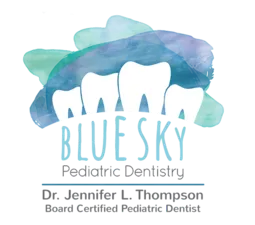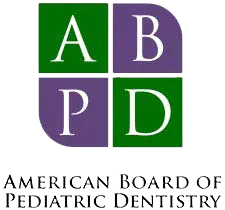What is a Pediatric Dentist?
A pediatric dentist has an extra two years of specialized training and is dedicated to the oral health of children from infancy through the teenage years. The very young, pre-teens, and teenagers all need different approaches in dealing with their behavior, guiding their dental growth and development, and helping them avoid future dental problems. The pediatric dentist is best qualified to meet these needs.
Why is a Board Certified Pediatric Dentist Important?
Board Certified Pediatric Dentists complete two additional years of residency training, working exclusively with children under the mentorship of other experienced pediatric dentists. They then go through a series of rigorous exams to complete the process for board certification. Read more about the benefits of seeing a board certified pediatric dentist here:
When Will My Baby Start Getting Teeth?
Teething, the process of baby (primary) teeth coming through the gums into the mouth, is variable among individual babies. Some babies get their teeth early and some get them late. In general the first baby teeth are usually the lower front (anterior) teeth and usually begin coming in between the ages of 6-9 months.
What’s the Best Toothpaste for my Child?
Tooth brushing is one of the most important tasks for good oral health. Many toothpastes, however, can damage young smiles. They contain harsh abrasives which can wear away young tooth enamel. When looking for a toothpaste for your child, make sure to pick one that is recommended by the American Dental Association (ADA). These toothpastes have undergone testing to insure they are safe to use.
Dr. Jenn and the Academy of Pediatric Dentistry recommend all children use a fluoridated toothpaste after the eruption of their first tooth, regardless of their ability to spit. Even if your child swallows the controlled amount of toothpaste, the benefits outweigh the risks of ingestion. For children under the age of 2, use a smear (the size of a grain of rice) and mash it into the bristles of the toothbrush. For children 2-5 years old, use a “pea-size” amount of toothpaste (toothpaste) and assist with your child’s toothbrushing. Remember that young children (under the age of 8) do not have the ability to brush their teeth effectively on their own, and we recommend an adult help with brushing and flossing.
Does Diet Effect Dental Health?
Healthy eating habits lead to healthy teeth. Like the rest of the body, the teeth, bones and the soft tissues of the mouth need a well-balanced diet. Children should eat a variety of foods from the five major food groups. Most snacks that children eat can lead to cavity formation. The more frequently a child snacks, the greater the chance for tooth decay. How long food remains in the mouth also plays a role. For example, hard candy, fruit snacks and breath mints stay in the mouth a long time, which cause longer acid attacks on tooth enamel. If your child does snack, choose nutritious foods such as vegetables, low-fat yogurt, and low-fat cheese which are healthier and better for children’s teeth.
How Do I Prevent Cavities?
Good oral hygiene removes bacteria and the left over food particles that combine to create cavities. For infants, use a wet gauze or clean washcloth to wipe the plaque from teeth and gums. Avoid putting your child to bed with a bottle filled with anything other than water.
For older children, brush their teeth with a fluoridated toothpaste at least twice a day. Also, watch the number of snacks containing sugar that you give your children (including fruit snacks and crackers).
The American Academy of Pediatric Dentistry recommends six month visits to the pediatric dentist beginning at your child’s first birthday. Routine visits will start your child on a lifetime of good dental health.
Dr. Jenn and her team may also recommend protective sealants or home fluoride treatments for your child. Sealants can be applied to your child’s molars to prevent decay on hard to clean surfaces.

